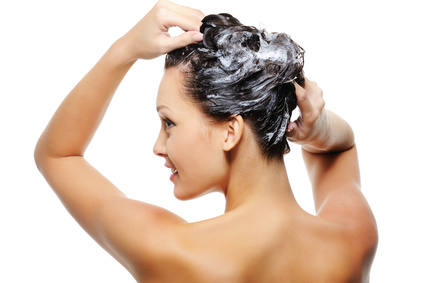If you wash your hair daily, you are doing more harm than good to your strands. If you have been wondering about how often you should wash your hair, you are not alone. This is a common question that requires an answer based on several considerations. Does it become oily quite often? This is mainly caused by production of an oily substance called sebum from the sebaceous glands in your skin. Overproduction can occur due to hormonal and genetic factors, according to Paradi Mirmirani, a dermatologist at Kaiser Permanete. Here are considerations you should make to know if you should wash your hair daily:
What Triggers Greasy Hair
Sebum is the compound that keeps your hair moist and prevents it from dryness. Sebaceous glands are located next to the roots of your hair in a skin layer referred to as dermis. Sebum is conveyed into your hair follicles through several channels from the sebaceous glands. If your sebaceous glands overproduce sebum, chances are that your hair becomes greasy quite often. Hormones responsible for sebum overproduction usually spike during puberty, and are the main cause for acne and greasy hair at puberty. However, even with overproduction of sebum, there is no enough excuse to wash your hair every day.

When Should You Wash Your Hair
In reference to Mirmani, while there are different factors that determine how often you should wash your hair, doing it every day can strip natural oils and make your hair vulnerable to breakages or loss. You could be doing more harm than good to your hair if you wash it daily, according to Lynne Goldberg, a dermatologist and director of Boston Medical Center’s hair clinic. Goldberg says that if you wash your hair every day to eliminate oils, you could be drying your scalp which means more oil will have to be secreted. Besides skipping washing your hair regularly, here are other factors you should consider:
- Your skin type: If you don’t have a super oily skin, you should limit washing your hair every week. Doing it once or twice every week won’t cause any harm, recommends a health column from Columbia University. However, wash your hair quite often (but not daily) if you have an oily scalp.
- Your hair texture: The texture of your hair influences how quickly sebum travels into your follicles up to their tips. If you have long or curly strands, it may take a little longer for sebum to reach the tips. If this is the case, experts from Columbia University recommends washing hair one every week, helps to avoid hair loss. However, if you have fine or straight hair, you should shampoo it at least twice or more every week, but not every day.
- Your style: What are the paces you like when treating or styling your hair? In reference to Mirmirani, wash your hair less frequently if it is prone to damages during styling or treatment. You are the one to figure out if you hair is prone to damages during styling and treatments.
- Treatment products: If you use cosmetic products that relax your hair and which provides vitamins for proper hair growth, it is more fragile and caution should be observed when shampooing, according to Ibrahim Sprinkle, a celebrity hair stylist. It is also tricky if you have keratin-treated hair. Though your hair might feel greasy a few days after the intensive treatment, you don’t have to wash out the protein from your hair. Experts recommend lathering it up every other day, but switching your existing formula for a more keratin-safe version. It is advisable to use sulfate-free shampoo to prevent stripping keratin from your hair.
- Color-treated hair: Washing your hair every day can cause fading if it’s color-treated. You should aim to strip dirt and excess product. Since the dye alters the health of your strands and make your hair more porous, shampooing quite often can strip the color molecules from your hair follicles. It is recommendable to wash your hair twice every week with a color-preserving formula, says Sprinkle.
Conclusion
Though some people find it appropriate washing shampooing hair regularly, it could be doing more harm than good. This is because it might strip natural oils from your strands and make your hair more vulnerable to damages. Consider your hair as a fabric that fades and lose dimension through frequent washing.
Author Bio:
Kelly Everson is an American author and having MA in English literature. After spending time as a writer in some of Health Industries best websites, she now works as an independent researcher and contributor for health news related website like Consumer Health Digest. In her spare time, she does research work regarding Beauty and Women Health, Fitness and overall health issues, which acts as a fuel to her passion of writing. When she is not researching or writing, you can find Kelly staying active, whether it be practicing yoga or taking swimming classes. Connect with her on Facebook and Twitter.
